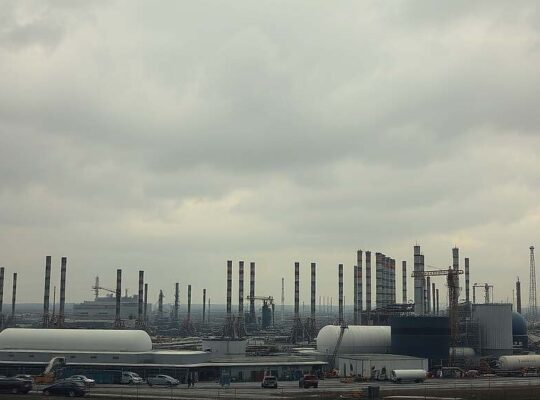The debate surrounding the European Union’s planned ban on internal combustion engine (ICE) vehicles has intensified after comments from Friedrich Merz, leader of the Christian Democratic Union (CDU), ignited criticism from climate activists. Fridays for Future (FFF) has strongly condemned Merz’s suggestions that the phasing out of ICE vehicles is under review, labelling them “fatal” and warning of significant repercussions for the transition to a greener economy.
FFF activist Carla Reemtsma, in an interview with the “Rheinische Post”, argued that any questioning of the ban creates uncertainty within the automotive industry and risks perpetuating reliance on polluting vehicles, thus exacerbating the climate crisis. She accused the CDU of prioritizing the interests of the automotive lobby over meaningful climate action, particularly as summer temperatures continue to reach unprecedented highs.
The current regulations, known as “fleet limits” dictate that new vehicles registered within the EU must emit an average of 93.6 grams of CO2 per kilometer. These limits are progressively tightening, with the ultimate goal of reaching zero emissions by 2035, effectively ending the sale of new combustion engine vehicles. This framework is a cornerstone of the EU’s “Fit-for-55” package, a comprehensive initiative designed to put the bloc on a trajectory to limit global warming to just above two degrees Celsius.
The intensity of the current dispute carries considerable weight, particularly given a recent ruling from the International Court of Justice. The court has indicated that states exceeding the 1.5-degree Celsius warming threshold could face legal action and be liable for damages. This ruling underscores the seriousness of climate commitments and the potential legal ramifications of backsliding on existing policies.
Observers believe the CDU’s questioning of the combustion engine ban reflects a growing political pressure from the automotive industry and represents a potential shift in Germany’s approach to climate policy. Critics argue that weakening the ban would not only undermine the EU’s climate targets but also risk damaging Germany’s reputation as a leader in green technology and sustainable development. The controversy highlights the ongoing tension between economic interests and environmental imperatives in the fight against climate change and sets the stage for a potentially contentious political battle within the EU.












